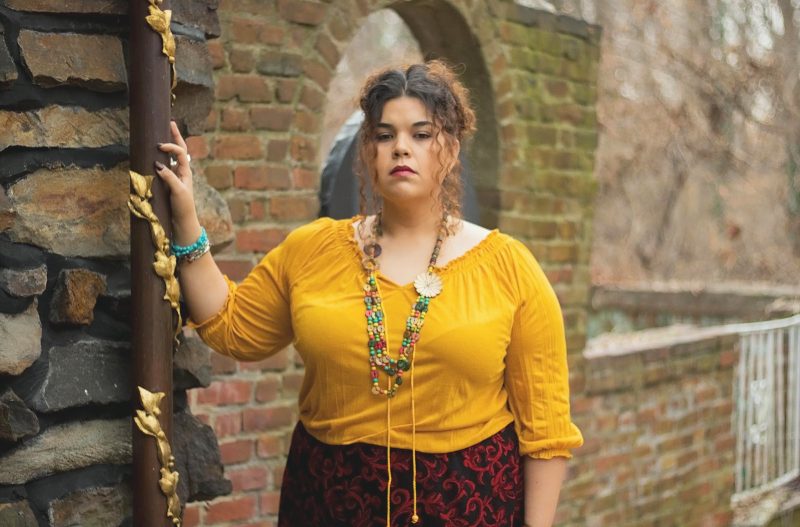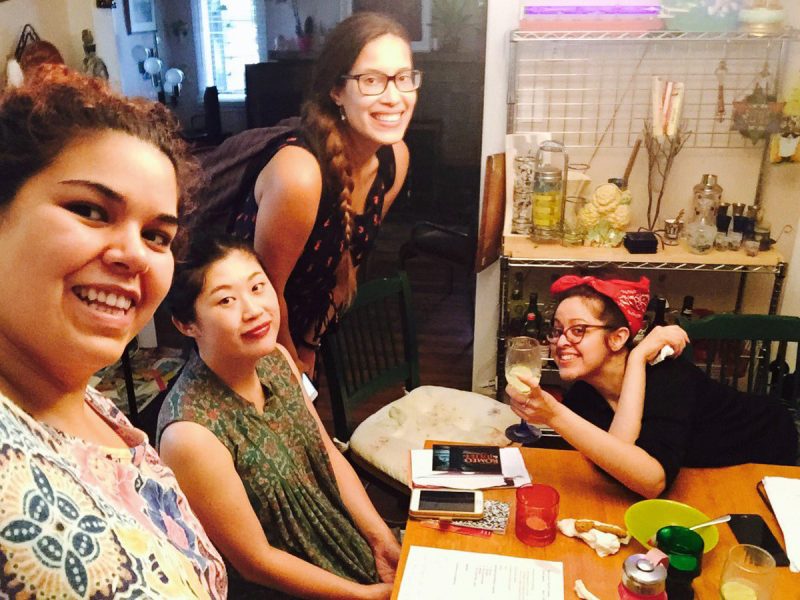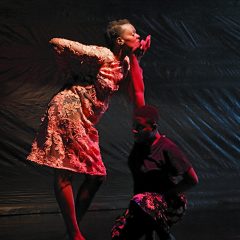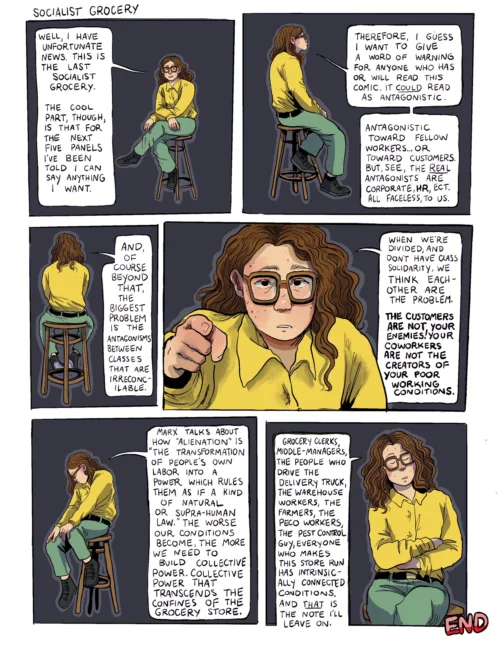About one-quarter of the way into the action of Las Mujeres, the main character, Marlene, who is a recently-promoted project manager of a civil engineering firm, attends a phantasmagoric dinner party hosted by Rita Hayworth, Frida Kahlo, Sor Juana Inés de la Cruz, and Minerva Mirabal.
Ruminations over Marlene’s childfree lifestyle, her struggles as the only woman in her workplace, and her responsibility to the legacy of Latina ancestors who came before her make this a play not just about feminist self-determination, but about the cultural links between the past and the present.

“They’re all there to teach her something different,” says Erlina Ortiz, the playwright for Las Mujeres. “These characters all just rose to the surface and I wanted to get inside their heads.” The women share lessons of survival, compromise, and resilience with Marlene and each woman represents a different struggle or personal bargain that Marlene has made in her life.
“If you would not have changed who you were everyone would have seen you as a successful Spanish woman, not an American.” Those are Frida Kahlo’s words to Rita Hayworth, highlighting their diametrically opposed perspectives on the importance of cultural preservation.
Rita Hayworth, who assimilated into American popular culture by changing her name, is as much a product of societal pressure as Sor Juana, the 17th century Mexican nun and scholar who was condemned for criticizing misogyny in the Catholic church. Minerva Mirabal – a leading figure in the rebellion against Dominican dictator Rafael Trujillo – urges Marlene to rebel no matter how high the stakes.
Inspired by Caryl Churchill’s play Top Girls, Las Mujeres takes the influential drama about women in the workplace and gives it its own special panache. Where Top Girls has its main character Marlene, drinking wine and champagne, Ortiz’s main character, Marlene, (pronounced “Mah-leh-nee” in Las Mujeres) makes pasteles with her guests. These touchstones lend the work a Latina perspective that typically falls outside of feminist discourse.

“When I first read Top Girls, I was very resistant to the format,” explains Ortiz. “But it intrigued me, and I liked her reasoning behind the layout.” Typically a stage play follows a very predictable arc — rising action, a climax, followed by falling action. But Churchill saw that structure as reminiscent of a male orgasm, and was interested in trying to write a play that resembled a female orgasm. The result was Top Girls: a story interspersed with job interviews that have no bearing on the plot (though they have a huge thematic significance), and a dinner party between fictional and historical characters that is never mentioned again.
Las Mujeres plays with this structure, and is interested in discussing not just gender, but cultural loss, assimilation, and Latinidad. Ortiz’s Marlene is a character caught between two cultures and representing a third culture in a way that resonated with me personally as a younger Latinx person. It’s a cultural position rife with contradictions and anxiety about authenticity and the relationship between modernity and ancestry. Marlene’s journey is one of conflict and compromise.

Las Mujeres is being produced by Power Street Theatre Company – a group dedicated to producing shows with a populist bent that empower marginalized artists and communities of color. Receiving a prestigious National Association of Latino Arts and Cultures grant to support Las Mujeres is a landmark for this group, now in its 6th year of operation.
“We’re gonna keep doing it; we’ve done it when no one comes, and we’ll do it when a million people come. We’ve done it when we have no budget, and we’ll do it when we have a million dollars,” Ortiz says, speaking in her capacity as a founding member of Power Street.
Indeed, the excitement and tenacity of this collective of artists is on-par with any of the larger theatre companies representing Philadelphia. Las Mujeres will premiere at the West Kensington Ministry after International Women’s Day from March 9th – 17th. Tickets are still available. Join Power Street Theatre Company in their celebration of resistance, ancestral feminism, and Latina fierceness!








